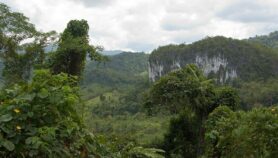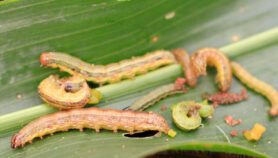By: Priya Shetty
Send to a friend
The details you provide on this page will not be used to send unsolicited email, and will not be sold to a 3rd party. See privacy policy.
Developing countries that are rich in biodiversity have called for tighter patent rules to prevent their biological resources being misappropriated and to ensure that benefits arising from their use are shared fairly.
The proposal was made at a meeting of the parties to the UN Convention on Biological Diversity held from14-18 February in Bangkok, Thailand.
Its proponents included the Like-Minded group of Mega-diverse Countries (LMMCs) — so called because they contain most of the world’s biodiversity — and a negotiating group representing Africa.
However, developed countries at the meeting, including Australia, Canada, the European Union and Japan (the United States is not a signatory) maintained an ‘open’ position, suggesting that benefit sharing could be enforced through existing instruments.
Among these are the Bonn Guidelines, drawn up in 2002 to help parties to the Convention on Biological Diversity implement fair access to genetic resources.
The South African representative told delegates that some intellectual property instruments undermine rather than promote benefit sharing. Developing countries said that instead they sought an international regime that supports and complements — rather than overrides — national legislation.
Critics of the developing countries’ proposal include Alan Oxley, based at the APEC Study Centre at Monash University, Melbourne, Australia.
In a report published to coincide with the Bangkok meeting, Oxley warned that going down a “litigious” path in which patents are tightly regulated “risks destroying benefits for everyone”. He argues that a market-based approach, in which agreements between users and providers of genetic resources are designed on a case-by-case basis represents the way forward.
However, an internationally flexible system that relies on such ad hoc agreements would mean that developing countries would be forced to police their own biodiversity — and not all countries have the resources to do this.
The LMMCs want the convention on biological diversity to ensure that countries can determine how products derived from their biological resources can be used.
Oxley maintains that the LMMC proposal would “block the development of biotechnology” and halt bioprospecting by deterring pharmaceutical companies from investing in research into drugs based on indigenous resources.
The LMMCs are Bolivia, Brazil, China, Colombia, Costa Rica, Democratic Republic of Congo, Ecuador, India, Indonesia, Kenya, Madagascar, Malaysia, Mexico, Peru, Philippines, South Africa and Venezuela.
To read more about these topics, visit SciDev.Net’s dossiers on biodiversity, intellectual property and indigenous knowledge.













